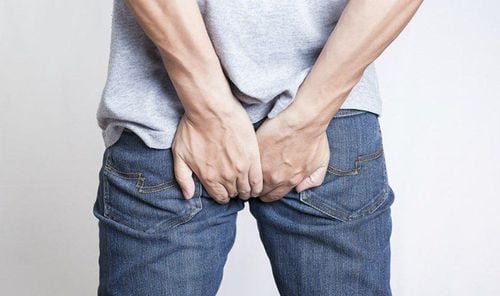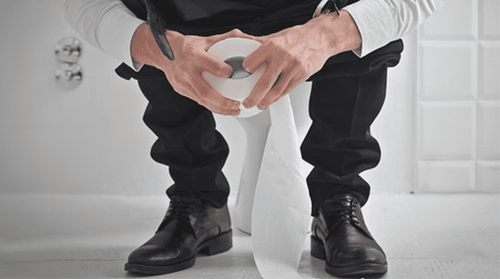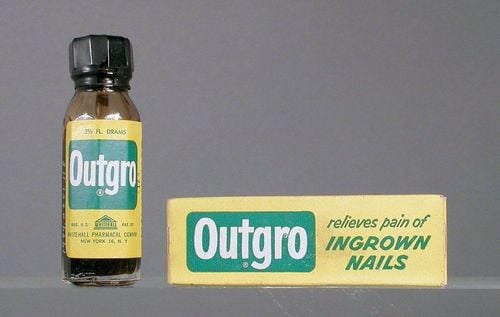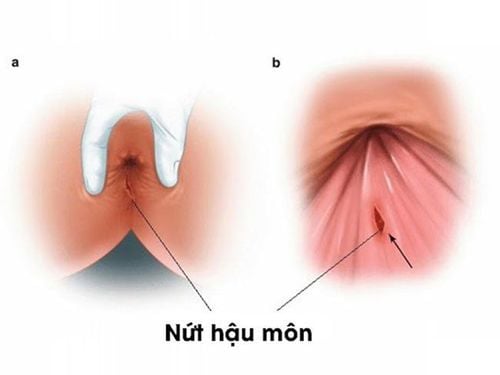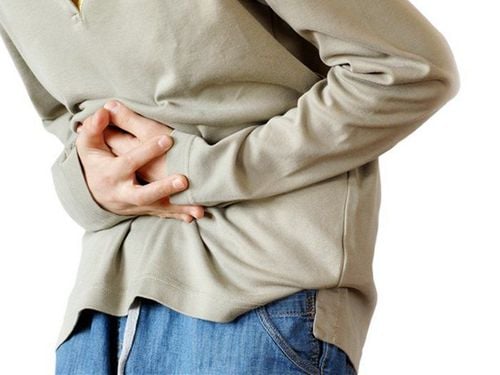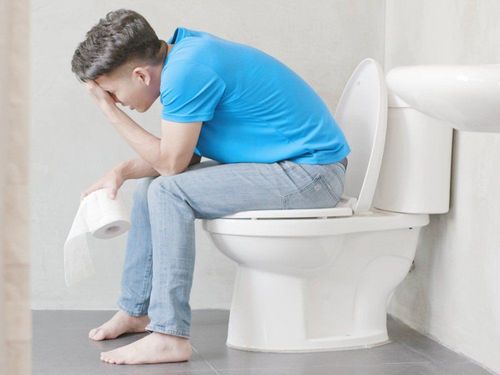This is an automatically translated article.
The article is professionally consulted by Gastroenterologist - Department of Examination & Internal Medicine - Vinmec Hai Phong International General HospitalAmong anorectal diseases, anal fissures are the third most common after hemorrhoids and infections. Although anal fissures are not life-threatening, they cause a lot of discomfort for the patient. So what is the cause of anal fissure?
1. What is anal fissure?
An anal fissure is a small tear in the thin lining of the anal canal with pain and bloody stools.The characteristic feature of a tear in an anal fissure is that it occurs at the site of the commissure, usually originating from the outer anal margin and ending below the dentate line of the anal canal. Most lacerations are located on the back of the anus (6 o'clock direction).
Lesions associated with anal fissures usually consist of a hemorrhoid or a piece of excess skin on the outside and a hypertrophic papilla on the inside. Therefore, according to the pathogenesis, the characteristic triad of anal fissures is the appearance of hemorrhoids with mucosal ulceration and the appearance of enlarged papillae.
Anal fissures can appear at any age but are more common in infants or young children. Most anal fissures heal on their own within 4-6 weeks. More serious if the disease lasts more than 8 weeks, it will turn to the chronic anal fissure stage.
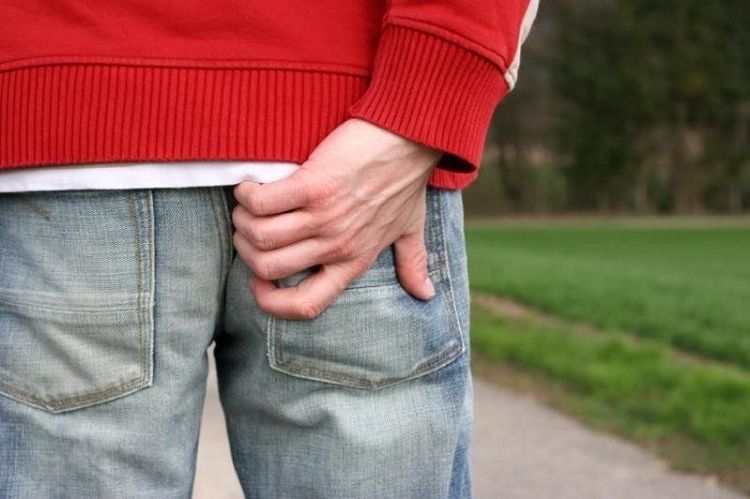
Nứt hậu môn có thể xuất hiện ở mọi lứa tuổi
2. Causes of anal fissures
Anal fissure is relatively common, so we need to know the cause of the disease to take effective preventive measures. Causes of anal fissure include:Passing stools that are too large for the size of the anal canal or stools that are too hard. Constipation, difficult bowel movements and a lot of straining when having a bowel movement. Contrary to constipation, prolonged diarrhea is also the cause of anal fissure. Diseases that cause inflammation of the anorectal area such as Crohn's disease or ulcerative colitis. Pregnancy and childbirth. Anal sex. The trauma directly affects the mucosa of the anal canal. Less common causes are anal cancer and certain infections such as HIV, tuberculosis, genital herpes or syphilis.
3. What are the symptoms of anal fissure?
Anal fissures have very specific signs, if the patient shows the following symptoms, they should go to medical facilities for early diagnosis and treatment:Feeling of sharp pain or severe pain when walking diarrhea, especially if the stool is large and hard; After defecation, there is still pain that lasts for many hours; There is bright red blood in the stool or toilet paper after a bowel movement; Sometimes there is an itching or burning sensation around the anal opening; The skin around the anus can be seen as a fissure; A small lump, flake of skin, or an enlarged papilla may be seen in the skin around the crack.
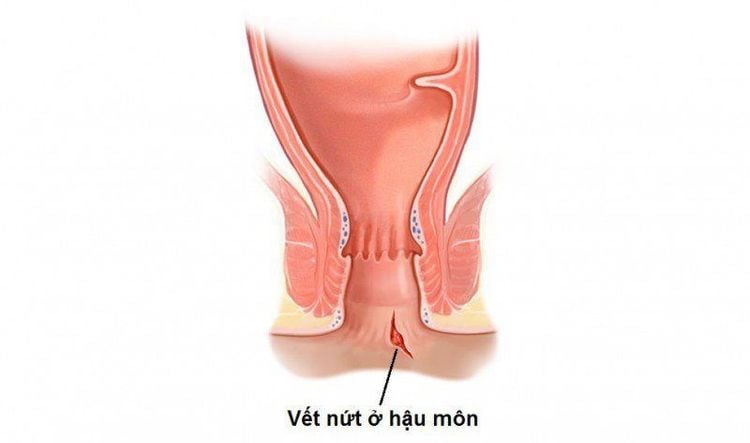
Bệnh nứt hậu môn có các dấu hiệu rất đặc trưng, dễ nhận biết
4. Diagnosing anal fissures
To diagnose anal fissures clinically, the examination method used is the anorectal examination by: the doctor will insert a gloved finger into the anal canal or use a short scope to observe. close to the lining of the anal canal.However, in special cases in some patients, the doctor only needs to look outside to see a tear, a piece of excess skin or an enlarged papilla around the edge of the anal opening, combined with clinical manifestations. of the patient to accurately diagnose the condition.
Acute anal fissure has a new tear, similar to a torn paper, when the disease moves to the chronic stage, the tears appear more.
Some diagnostic aids to help doctors assess the cause of anal fissure:
Rectal endoscopy: Usually indicated for patients under 50 years of age, with few risk factors for colon cancer. Colonoscopy: Indicated for patients over 50 years old to help survey the entire colon, detect abnormalities, especially colon cancer. Measure rectal pressure.
5. How to treat anal fissure?
5.1. Lifestyle changes Add the necessary amount of water each day, limit caffeinated drinks because this is the cause of dehydration. The diet needs to add a lot of fiber-rich foods to fully meet the body's needs (about 20-35g of fiber per day). The goal is to prevent constipation, making it easier for the patient to have a bowel movement. Some foods rich in fiber are: vegetables, fruits (banana, papaya, citrus fruits), whole grains, nuts... Osmotic laxatives: In case the patient still has If you have persistent constipation, even if you have enough fiber every day, your doctor may prescribe an osmotic laxative. The effect of laxatives is to soften the stool, retain water in the colon, make it easier for the patient to have a bowel movement, and reduce pain during defecation. If you feel like you have to defecate, you should go as soon as possible, do not try to hold back because a long time can lead to constipation, harder stools, causing anal fissures. Limit straining when defecating because this will increase pressure in the anal canal, causing anal fissure. Soaking in warm water will help heal anal fis like helping the anal canal muscles to relax. 5.2. Medical treatment Medicines to relieve uncomfortable symptoms of anal fissures such as: Ointments for pain relief, anti-edema: Anusol-HC, zinc oxide... Topical medicine containing the active ingredient Nitroglycerin: Helps dilate blood vessels blood in the anal area, increasing the amount of blood and helping the anal fissure heal faster. In addition, Nitroglycerin also works to reduce anal sphincter pressure, reduce spasms and pain symptoms.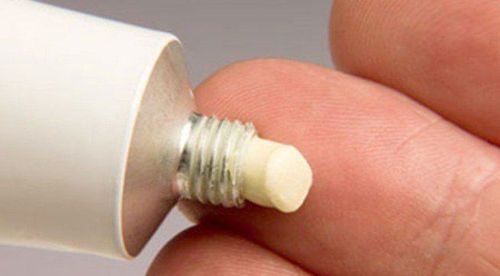
Thuốc bôi chứa hoạt chất Nitroglycerin sẽ giúp làm giãn các mạch máu ở vùng hậu môn
Studies show that for chronic anal fissures, surgery is more effective than medical treatment. However, a notable complication of anostomy is bowel incontinence (very low incidence).
Please dial HOTLINE for more information or register for an appointment HERE. Download MyVinmec app to make appointments faster and to manage your bookings easily.




